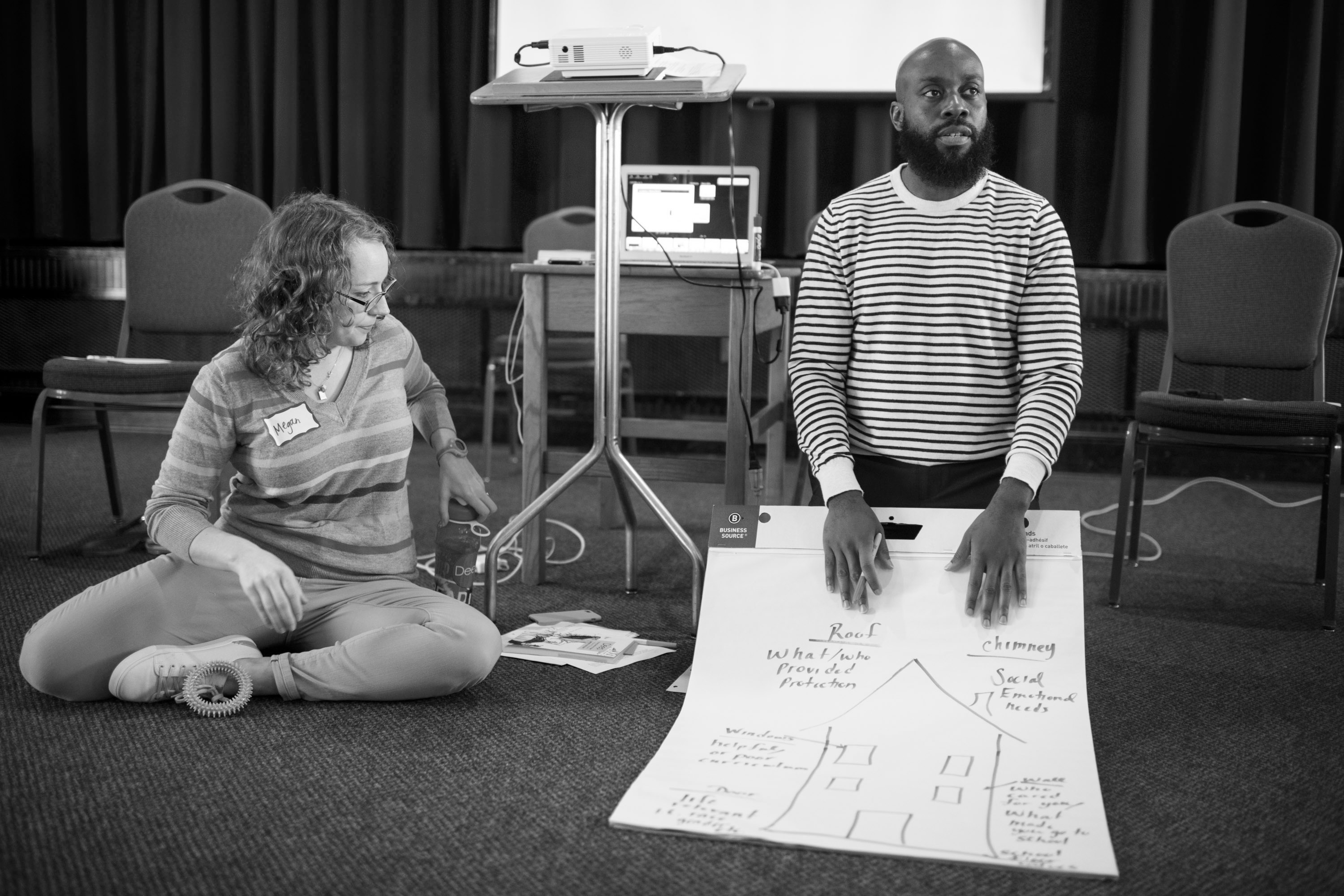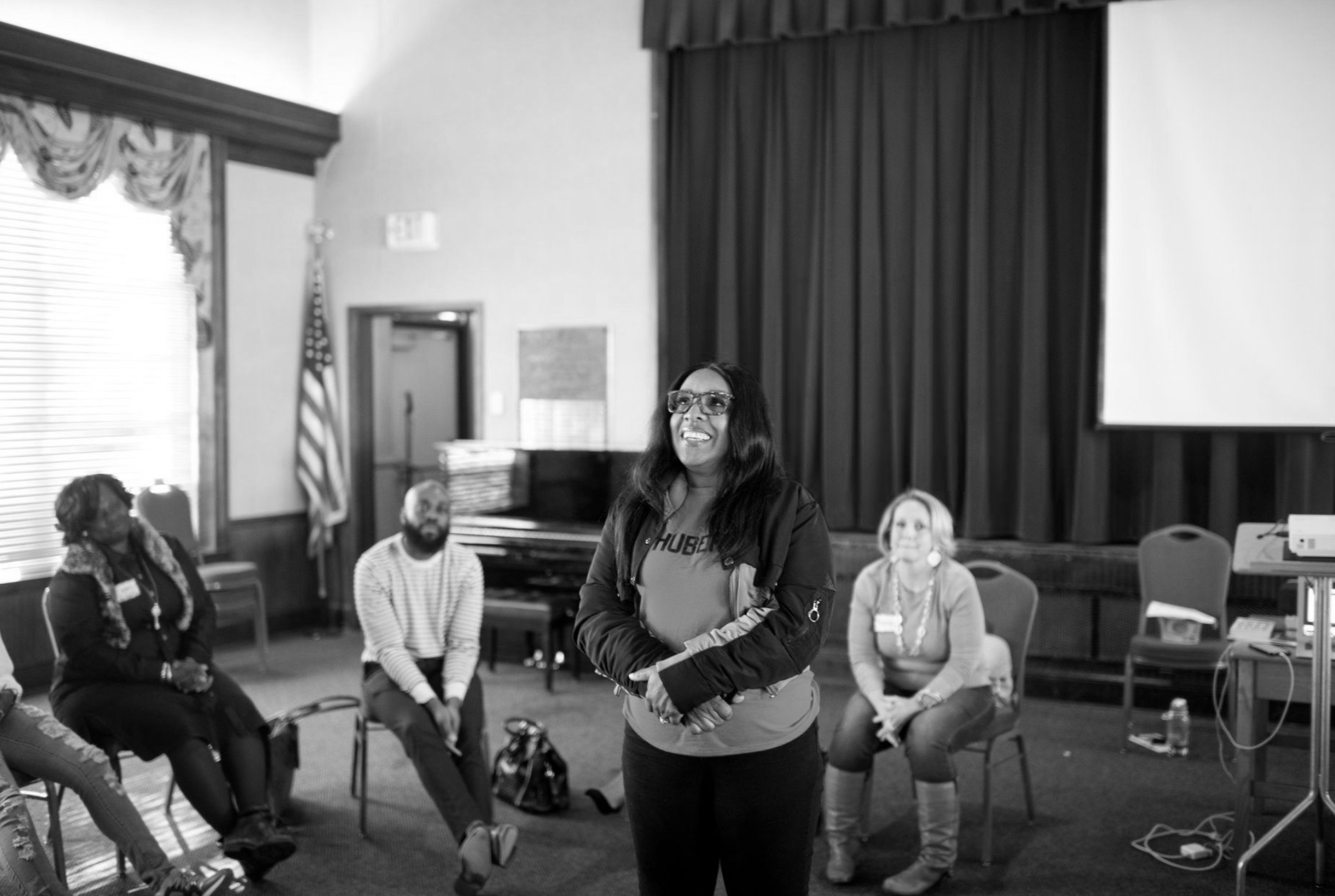Deep Center Healing Schools
Deep Center helps public school students connect their learning to their lives, their lives to their communities, and their actions to transformational change; and we also work with adults in young people’s village to make sure youth are seen in their full humanity, and to identify and advocate for policies that help young people and their families thrive.
In partnership with the Savannah Chatham County Public School System (SCCPSS), Deep is working to develop and implement a model for a healing-centered school climate, which will prepare students to be engaged, thriving participants in our democracy and communities: they will have the resources they need, be celebrated and served according to who and where they are, and be lifted up with their families and teachers as leaders able to influence school and district policies.
As school districts around the country grapple with the immeasurable impact of COVID-19 on student learning outcomes, the path forward is shrouded with more uncertainty than ever. However, navigating these challenging times, we’ve learned from our communities and the Savannah Chatham County Public School System’s (SCCPSS) administrators, teachers, staff, students, and families that with change comes opportunities to reimagine what’s possible.
Supporting youth across middle schools and high schools, coupled with key learnings from our Healing Schools Initiative pilot at Hubert Middle School, we’re deepening our commitment to an assets-based approach, guided by three key questions:
What restorative practices are already being implemented throughout SCCPSS by teachers, administrators, and staff?
What is the impact of existing and new restorative practices on school climate and culture, teaching instruction and student outcomes? How is it seen and experienced by SCCPSS teachers, administrators, staff, and students?
In what ways can restorative practices be strengthened to build a more robust infrastructure at the school and district level?

Healing Schools training
The Landscape
Savannah public school students, especially working-class students of color, face numerous barriers to their success—the vast majority of which are the effects of historical and contemporary structural injustices.
Poverty: 28% of residents and 42% of children live in poverty, 67% of public school students qualify for free or reduced-price lunch, and poverty disproportionately impacts communities of color. Research shows strong links between poverty and trauma and diminished capacities to learn and thrive. This context is reflected in, among other indicators, Chatham County’s achievement gap between white and black students: 30-40% in grades 3-8.
Over-sentencing: Chatham County’s juvenile justice system has nearly twice the number of court-involved youth as any other county in the state of Georgia (including Atlanta), and African American boys are six times more likely to be referred to court than their white counterparts. This isn’t because Savannah’s children are extra bad. It is because Savannah, lacking an equity-lens when allocating resources for youth, does not account for history, trauma, and structural injustices. So Savannah sentences children when it should support them.
Youth Leadership: Deep’s young people often cite respectability politics as a barrier to growth, expression, success, and their willingness to remain and engage in their communities. Youth—especially youth of color—are often told to “stay in their lanes” and not speak truth to power. The result is increased disconnection and a city that talks about but not with youth.
Old Stories: Youth of color are bombarded with old, deficits-based, racist narratives about them. They internalize these narratives, which hurt their confidence, safety, agency, ability to learn, and community connections. The public school system, which was largely abandoned by the white middle-class after Brown v. Board of Education, is also targeted by these false narratives, which are the pretext for funding cuts, harmful state policies, and other existential attacks.
Fertile Ground: The good news is that strong leadership in the SCCPSS, the juvenile courts, and the city and county is working to tackle these issues head-on. Superintendent Dr. Ann Levett has built powerful systems and partnerships that reflect the values described in this proposal—and her initiatives will make a robust foundation for the activities proposed here. And some of Savannah’s fiercest advocates for juvenile justice reform are inside the system (specifically, Judges Burke and Colbert). These folks have gathered momentum, are shifting culture, and have built assets (such as a multi-agency resource center, called the Front Porch, and the Work Readiness and Enrichment Program in partnership with SCCPSS) with TA support from Annie E. Casey Foundation. So while the challenges are real, there exists a great opportunity to support Dr. Levett’s effective leadership and the coalition of the willing with expertise, visibility and advocacy, and dialogue to envision new approaches that reframe Chatham County’s crime-and-punishment paradigm.
